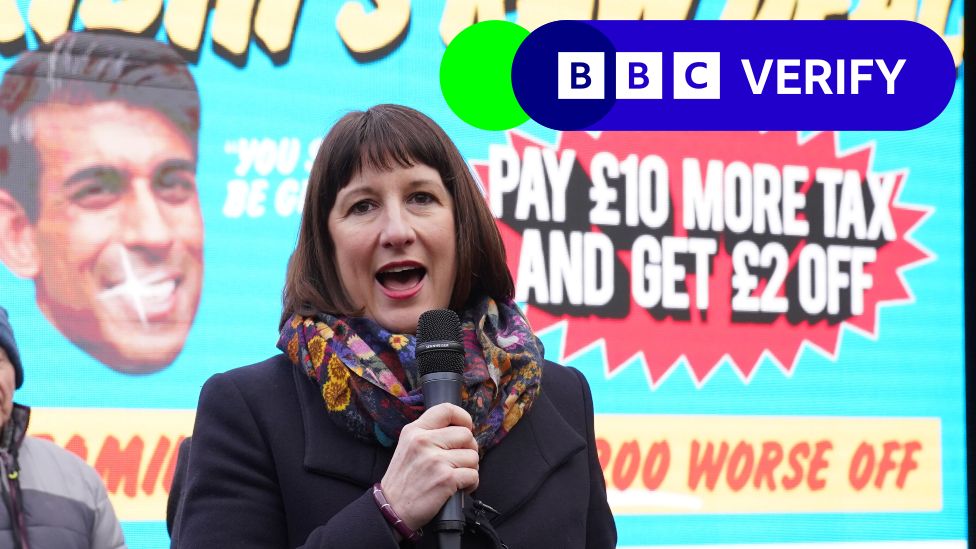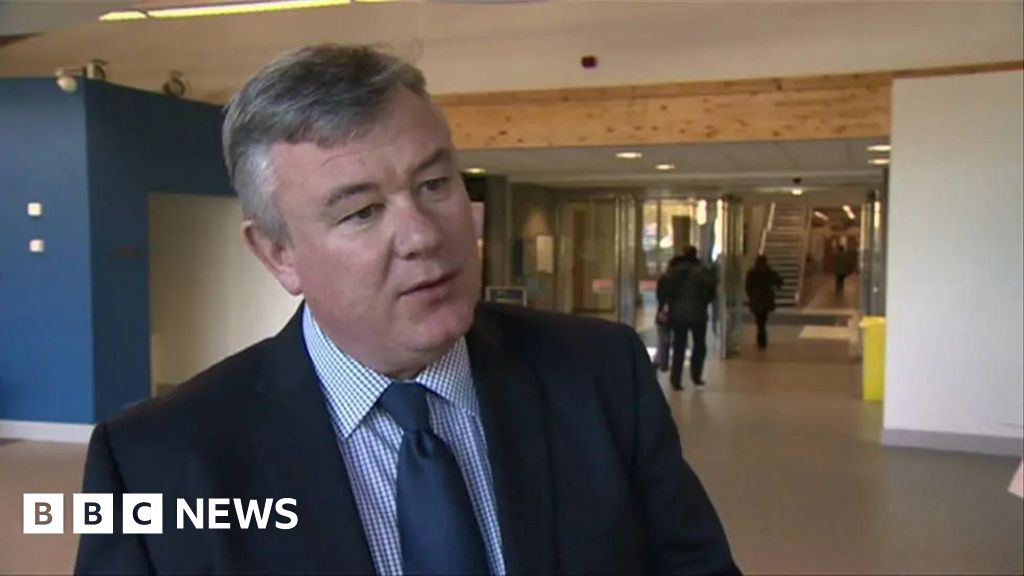ARTICLE AD BOX
 Image source, PA Media
Image source, PA Media
By Anthony Reuben
BBC Verify
Launching a new campaign poster on Friday, Labour's shadow chancellor Rachel Reeves made a claim about how much tax people will be paying this year.
"Working people are worse off under the Tories - £1,200 for an average family extra tax this year because of choices by Rishi Sunak and this Conservative government."
That's not correct and Labour have confirmed that she misspoke.
She was talking about it because National Insurance is coming down by 2p in the pound from 6 January 2024. But the level of income at which people start paying National Insurance and income tax has been frozen since April 2021. The freezes were announced between March 2021 and November 2022.
Where does the £1,200 come from?
Labour confirmed that the £1,200 figure came from research by the Resolution Foundation, focusing on living standards.
The independent think tank said in November 2023 that taxes would rise £1,200 per household by 2028-29.
This is based on the November predictions by the Office for Budget Responsibility, which makes forecasts for the government:
- The personal tax rises announced between March 2021 and November 2022 would raise £44.6bn in 2028-29
- The 2p in the pound cut in National Insurance offsets £10bn of this to give £34.6bn
- If you divide that by the number of households (currently 28.2 million) you get just over £1,200.
Of course, not every household will pay £1,200. Richer households will pay significantly more - poorer households much less.
So what is happening this year?
For an employee on average full-time earnings of about £35,000, the two factors roughly cancel each other out this year, according to the independent economic think-tank, the Institute for Fiscal Studies (IFS).
That will not be the case for all workers. Some of those on lower incomes will lose out - some higher earners will gain more than they lose. The IFS says that it is a tax rise overall this year.
It is in later years that the increases in taxes outweigh the National Insurance cut for the average earner, as more people start paying tax and start paying higher rates of tax.
Will the average earner save £450?
Prime Minister Rishi Sunak spoke about tax cuts in an interview on Friday. He said: "We're in a position where we can cut people's taxes. So for a typical parent in work earning £35,000, the average salary, then they will get a tax cut worth £450."
He's right about the £450 but he is ignoring the effect of the previous tax rises, some of which come into force this year.
Here's where the £450 comes from:
- The threshold to start paying National Insurance is £12,570
- That means our employee on £35,000 (the average salary for full-time employees) pays National Insurance on £22,430 of it
- Instead of paying National Insurance at 12% they will be paying it at 10%, so paying £2243 instead of £2692, which is a difference of £449.
But if the tax increases are taken into account, as we have already mentioned, that average earner will just about break even, according to the IFS.
Their analysis finds that even if only the freeze on tax thresholds this April is taken into account (as opposed to freezes going back to 2021) the average earner will still only be £130 better off.

 1 year ago
61
1 year ago
61








 English (US) ·
English (US) ·